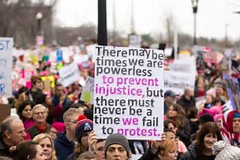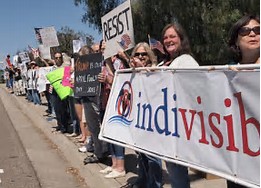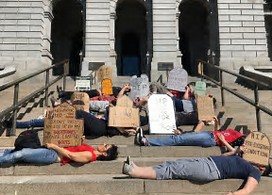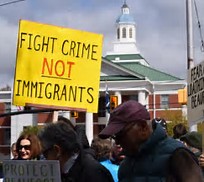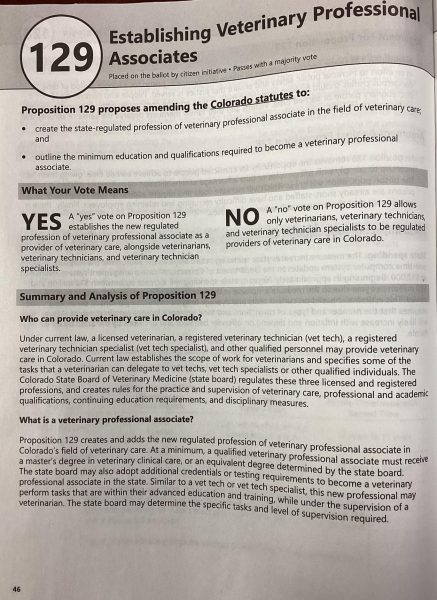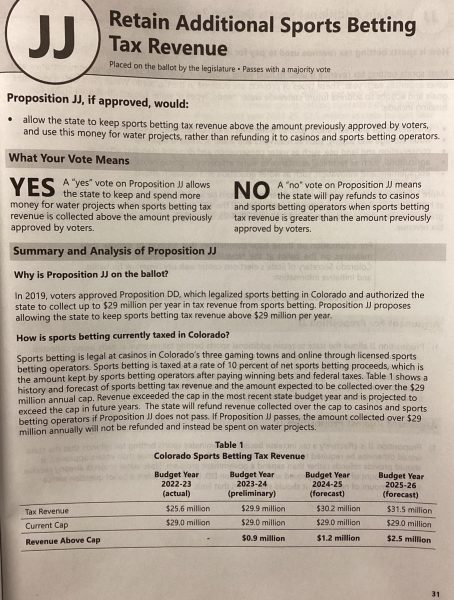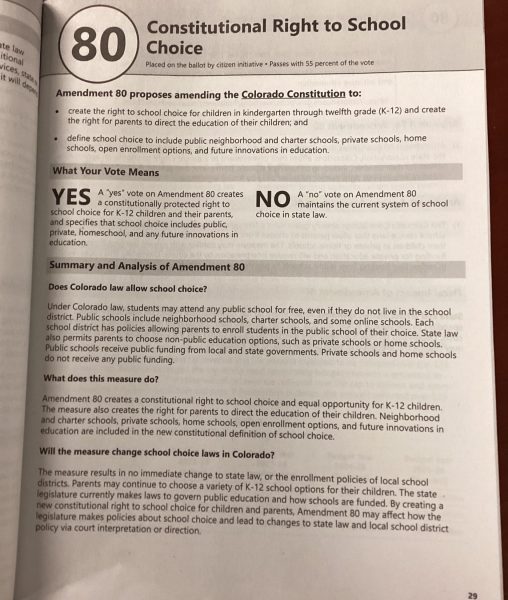‘Resistance’: The People’s Super PAC
As political money deluges society, and super PACs take on fierce meaning in our broken system of fairness in campaigns, the path to “the resistance” is emerging.
It is not an organization or a corporation. It is not a tax-exempt group or a non-profit company. The resistance is a movement of many organizations, groups, super PACs, and activists, fighting back against new and proposed policy changes being pushed or implemented in society.
It is as diverse as our culture, and like an octopus, the resistance has many arms.
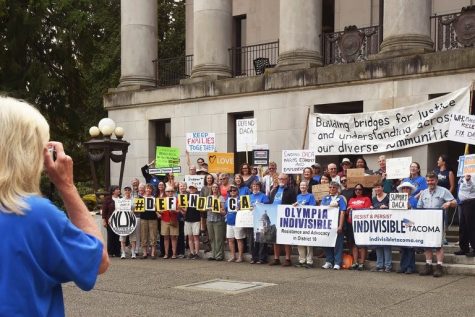
The displays of defiance are empowered in each instance by a necessity to protest sometimes radical policy changes being pushed by the new administration, by the majority in Congress, in state governments, and the courts. Many changes proposed inarguably represent a radical change to our country and way of life for millions of people.
It may not be front page news, but every day many currently serving government leaders in Congress do advocate for campaign finance reform, for a better healthcare system, for civil rights, for human rights, for civil order and decency, for financial and environmental protection and for food safety regulations. All sought for the purpose of tending to the rights and needs of hundreds of millions of ordinary people, pursuing happiness by managing the costs of living for their families.
There are some whose interests benefit from the brokenness and will not act. Until a sitting Congress gains enough members who want to fix the system and will vote to do so with veto-override numbers, our politics and discourse will suffer.
But money isn’t everything and people have power too. Citizens are fighting back with the power of voice and vote in the ongoing battles over policy.
By the time Donald Trump became president, Republicans had secured a solid majority in Congress, state governorships, and a comfortably conservative Supreme Court. The only option left for some activists against that agenda was to take to the streets.
Activists and concerned citizens marched to speak out. Some marches were organized and planned. Other protests broke out, like spontaneous combustion in reaction to a change, a proposed change, or a refusal to act on critical bills such as infrastructure.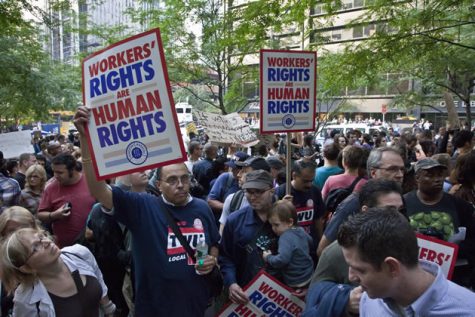

Women’s marches budded from the harsh policies being pushed on society that dictate what people can do in family planning, such as birth control restrictions and closing of health clinics – policies that help low income people.
Laws that allow and encourage discrimination and classifications of people have been a focus of intense battles in congress, state legislatures, and the courts. The proposed laws cause havoc and divisions in society. Nevertheless, there are elected leaders who stand behind laws that mark classes of people and grant them fewer rights and dignity.

The marches continue–environmental marches, healthcare marches, gun policy marches, and civil rights marches—all people that are advocating for a better system of criminal and civil justice.
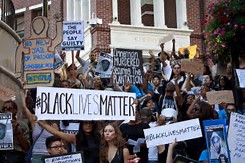

The press/media arm of resistance is vital to the functioning of the entire body since it has constitutional backing as a necessary foundation in our form of government. There are some elected leaders attacking the long-held, treasured, and protected rules of press freedoms.
Resistance to those attacks take place more subtly.
There are open records laws, ethics laws, state laws–hundreds of other laws at citizens and media’s disposal, to use in defense against an oppressive or harmful policy or in offense of a desired policy change. Journalists are utilizing all the tools, exploring all the options, and adapting to an ever-increasing news cycle of information and new information about policy fights.
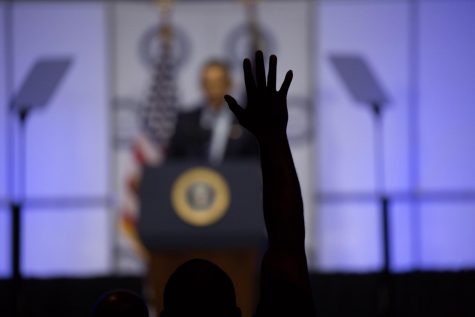 “A popular government without proper information or the means of acquiring it, is but a prologue to a farce, or a tragedy, or perhaps both.”
“A popular government without proper information or the means of acquiring it, is but a prologue to a farce, or a tragedy, or perhaps both.”
— James Madison in 1822
Part of the media resistance are the reporters who follow and track campaign money and spending from public records. The amounts are mind-boggling to most. OpenSecrets has all the super PAC numbers and charts, broken down every way possible—by party, by candidate, by sitting congress members even, or by issue.
If campaign donation figures did not motivate people to resist, the amounts of money some current administration officials were spending on lavish travel and other expenses sure did.
Business Insider details some of the dollar amounts Trump Cabinet members have expensed in taxpayer-funded travel:
Steve Mnuchin, Secretary of Treasury: $26,900 flight to KY on an Air Force jet.
Scott Pruitt, EPA taxpayer, funded flights: $60,000. The Office of the Inspector General is investigating.
Rick Perry, Energy Secretary: $56,000 for private planes.
Tom Price, Health Secretary resigned, but he had more than $1 million in travel expenses.
As these officials spent taxpayer dollars wantonly, they stridently worked to take public assistance programs from tax dollars away from people. The efforts to take away affordable insurance for healthcare is a prime example. A loud and long arm of resistance emerged to block those efforts.
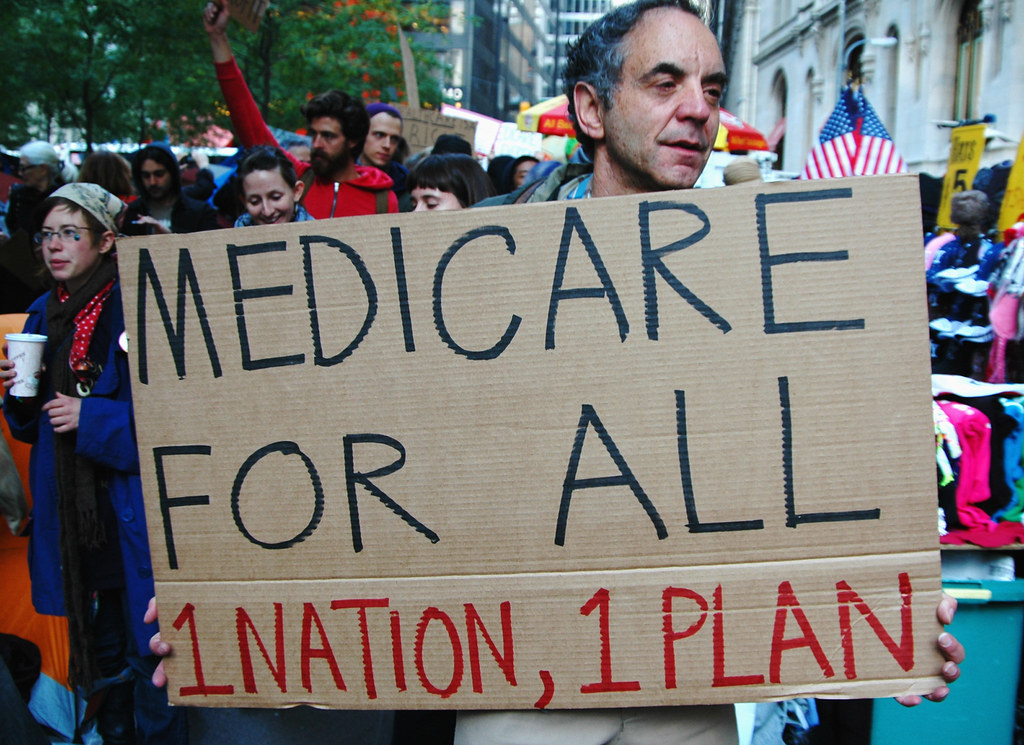
It will be round two for that resistance now, as President Trump is attempting to forcibly take away those rights via executive orders. The matter is in court, as are dozens of other cases on a host of different issues involving policy changes the republican administration or state leaders want.
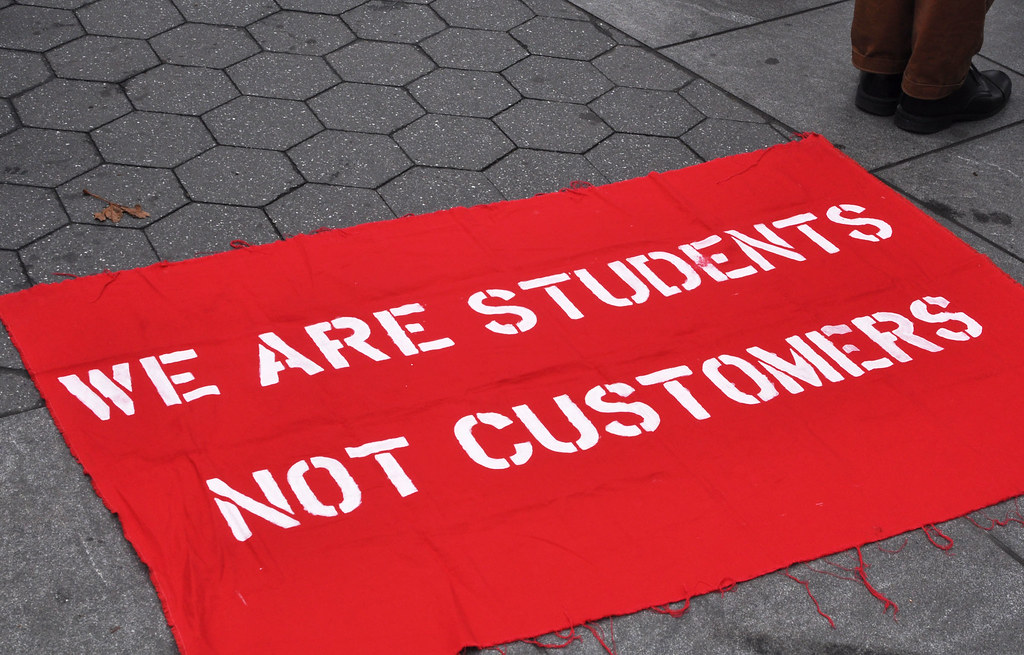 Students saddled with debt are speaking out. Some government leaders are shouting too. Bad policies have kept far too many students from receiving higher education. The students who do receive college education are made to pay for it with mind-boggling debt, which can crush hopes and dreams, along with realities.
Students saddled with debt are speaking out. Some government leaders are shouting too. Bad policies have kept far too many students from receiving higher education. The students who do receive college education are made to pay for it with mind-boggling debt, which can crush hopes and dreams, along with realities.
Vermont Senator Bernie Sanders (D) has been leading the charge for years to make college tuition free. It is a widely supported idea, but hasn’t garnered enough votes in Congress yet. 
Teachers really need to earn a decent and livable wage. They should not have to protest for the attention the issue deserves, but they do. The education agenda as set forth by Education Secretary Betsy DeVos is also causing major push-back and protests, largely about the agenda to privatize schools.
Wall Street financial interests are also on the offense for special treatment. The Obama administration’s Consumer Financial Protection Bureau (CFPB), and all its pesky new regulations that protect people—Wall Street special interests want it gone. 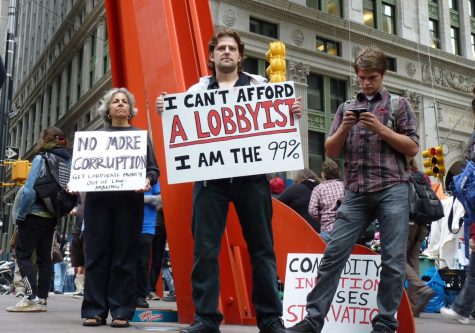

Senator Elizabeth Warren (D-MA) is a fierce leader in the fight to protect the CFPB, which provides critical aid to the public on protecting themselves from opportunists in the money markets, to say the least.
Critical to generations of people, is the arm of resistance fighting against deregulation of environmental rules and protections of our water, air, and food. The agenda of the current administration on the environment has been distributed boldly, and hurricane size forces have lined up against it.
Special interests decry financial and environmental regulations and declare them to be “too burdensome” on businesses, which costs jobs. Problem is, they have used that line for decades and receive billions in tax breaks because of it. Meanwhile, people shout and ask: “Where are the jobs? Why not protect our environment? What about climate change, and protecting our food supply from bad chemicals and our water from pollutions?”
As the Center for Public Integrity details, it is in state government where some of the biggest money fights are taking place. Battles over campaign finance take place in states such as New Mexico, where new campaign finance disclosure rules are going into effect against strong and on-going opposition.
South Dakota had a ballot measure pass by the voters, but its legislature voided the measure. The South Dakota legislature banned the measure from ever being considered again in the wording of their decision to void the people’s voice and vote.
Another form of resistance to radical policy takes shape in civic and civil rights organizations who pursue lawsuits on behalf of the general welfare of people. When discriminatory laws are proposed or enacted, groups like the American Civil Liberties Union (ACLU) are on the case.
Some of the recent and ongoing cases the ACLU is involved in:
International Refugee Assistance Project v. Trump, regarding challenges to President Trump’s Muslim ban executive order.
Charlie Craig and David Mullins v. Masterpiece Cakeshop, regarding discrimination based on sexual identity.
Jennings v. Rodriguez, regarding immigration laws that subject immigrants to long-term detention without individualized bond hearings.
United States v. Carpenter, a case regarding the government’s rights and limits to obtaining cell phone records for suspects.
Some state leaders are also taking the baton and leading resistance on a wider scale. States like Oregon and California for example sued to have President Trump’s illegal immigration bans overturned. Other states have sued the federal government over stringent, unfriendly, arguably unconstitutional voting restrictions.
Out of battle wounds and scars has grown a new political organization, called Indivisible. The grassroots organization formed in knee-jerk response to the election of Donald Trump as president. Indivisible blossomed by fine-tuning a process for helping ordinary people find outlets and ways to express themselves, organize, and find ways to help.
The Indivisible organization is not a movement in and of itself, say its leaders. The groups of people are the movement. Indivisible is more like a hub for thousands of smaller activist groups of people to learn and network—to strengthen their arms and activate their voices.
It is why Indivisible founders will not trademark the Indivisible name. They say, “resistance belongs to everyone.”

